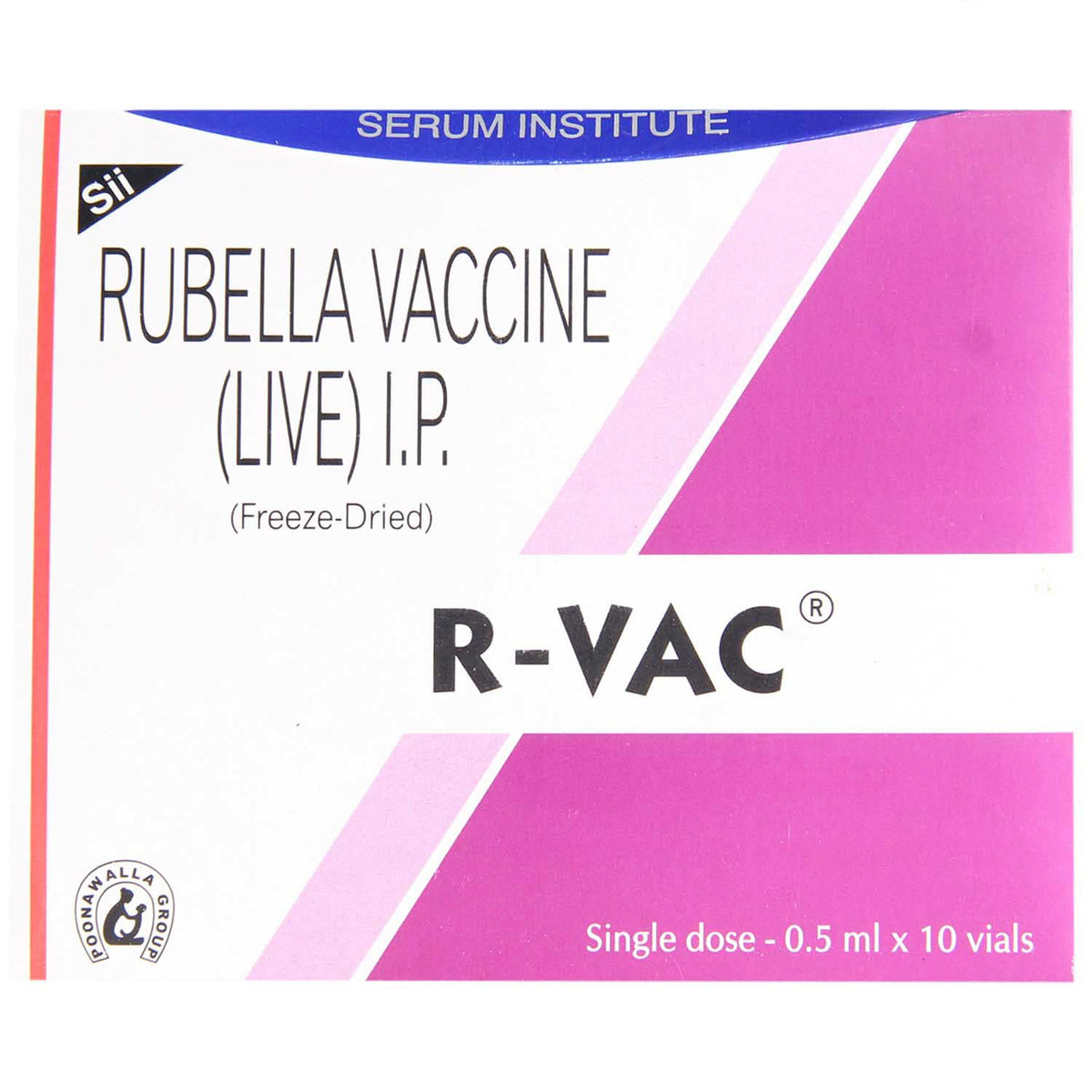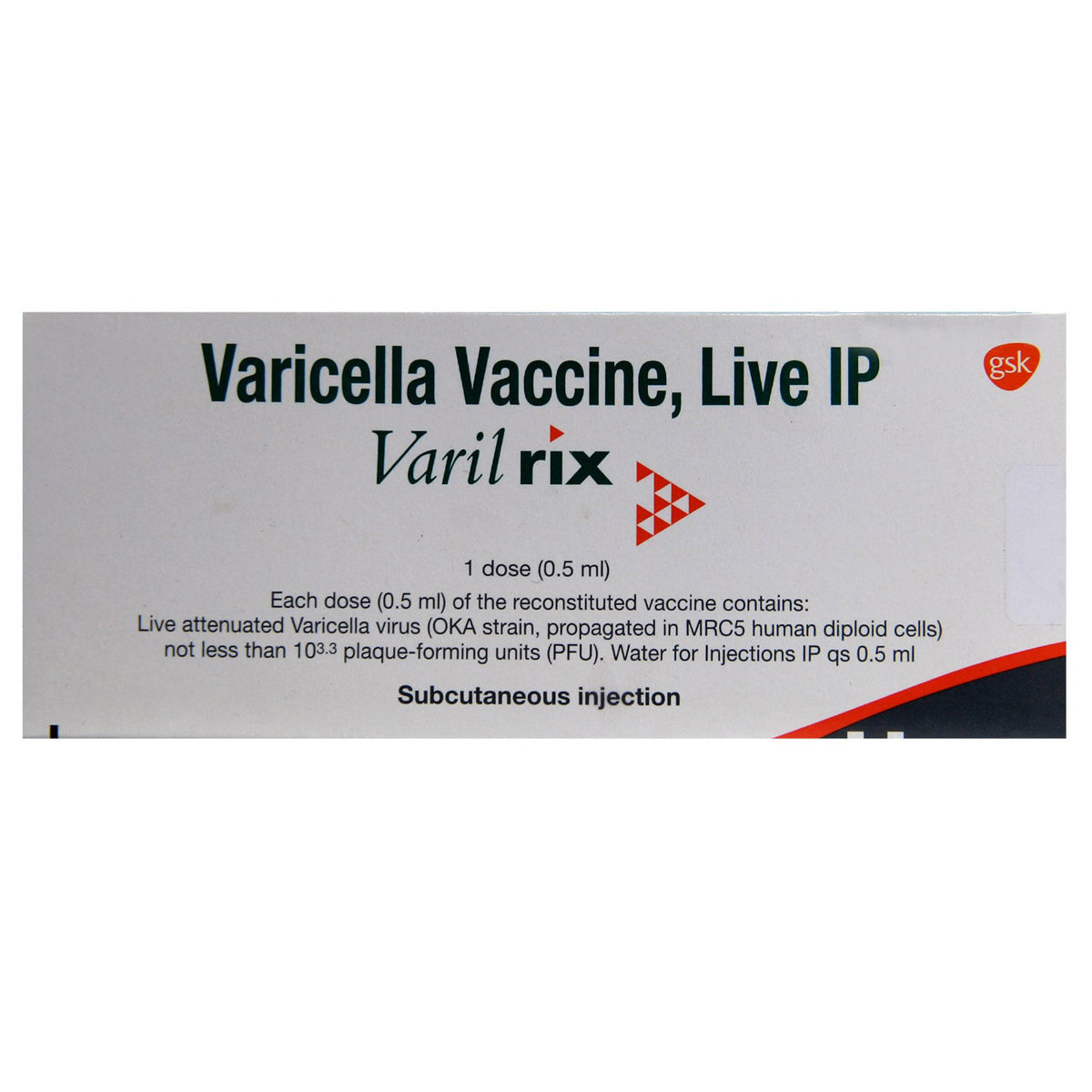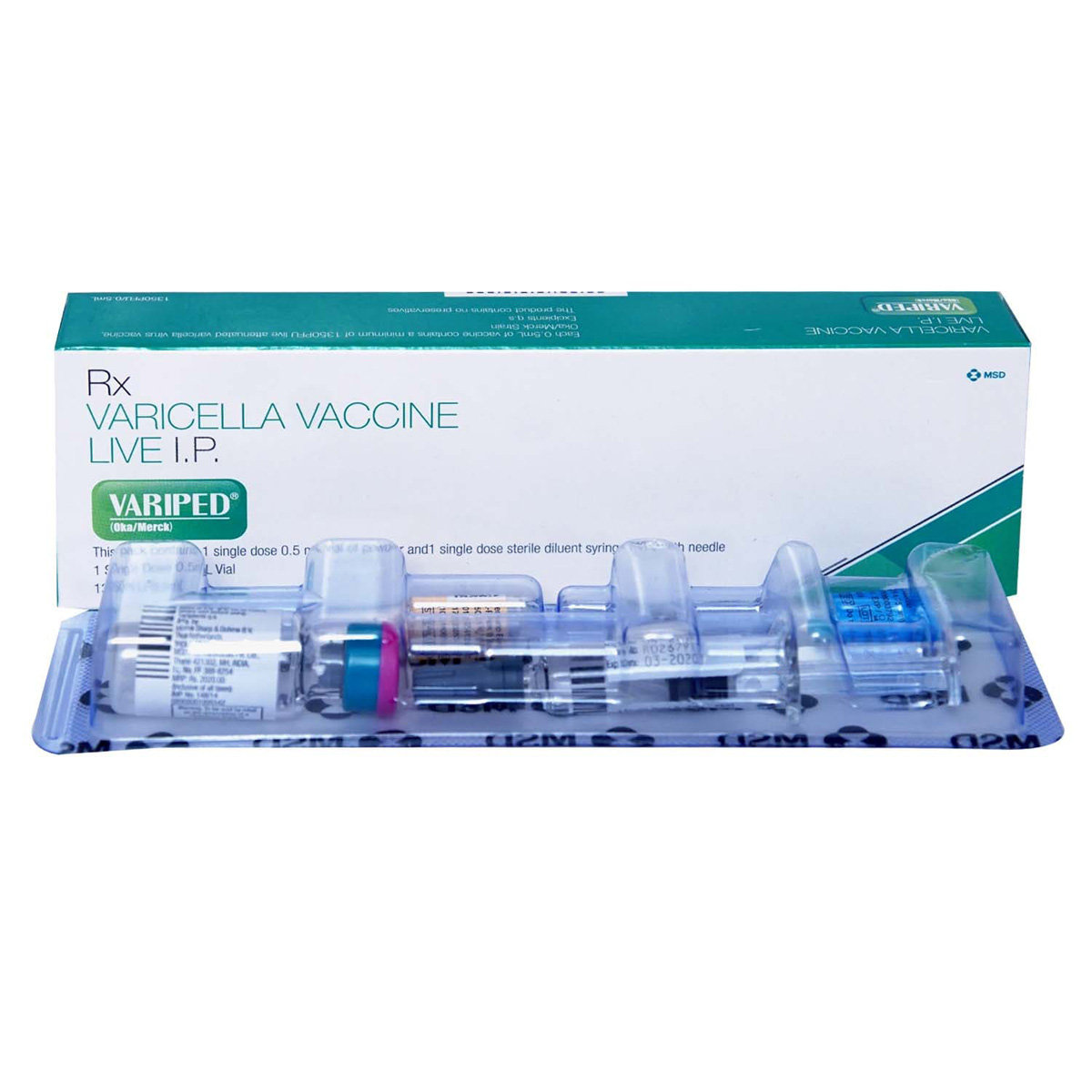Rubella (live Attenuated)
About Rubella (live Attenuated)
Rubella (live Attenuated) belongs to the class of medicines called ‘immunizing agents’ used to prevent rubella infection. Rubella is a serious viral infection. It is a highly contagious disease that spreads through saliva, mucus, or droplets from sneezing or coughing. A distinctive red rash characterizes it. This condition can be prevented by effective vaccination.
Rubella (live Attenuated) is a vaccine or immunizing agent that contains which is made from a live and weakened or attenuated virus. It helps to develop immunity by stimulating the immune system to produce antibodies. It is essential to take the vaccine doses per the doctor’s advice for effective protection against the disease.
Rubella (live Attenuated) will be administered by a qualified healthcare professional. Rubella (live Attenuated) may cause side effects such as a burning sensation at the injection site, low-grade fever, rash, sore throat, breathing difficulty, tingling sensation in the limbs, and joint pains. These side effects are temporary and resolve without any treatment. However, inform your doctor immediately if these side effects persist or worsen.
It is not recommended to take Rubella (live Attenuated) if you are allergic to neomycin or any contents of it. Before taking Rubella (live Attenuated), inform your doctor if you have any allergies or a weak immune system due to long-term diseases such as cancer or HIV, serious infection or illness with fever, blood disorders, immunological diseases, and active untreated tuberculosis. Rubella (live Attenuated) is not recommended for use in children less than 12 months of age. Rubella (live Attenuated) should not be used in pregnant women and should be used with caution in breastfeeding mothers.
Uses of Rubella (live Attenuated)
Medicinal Benefits
Rubella (live Attenuated) can prevent rubella if taken as per the doctor’s advice. It is usually safe and effective. This vaccine is given as a part of routine vaccination in children. Rubella (live Attenuated) can provide immunity within 2 to 6 weeks after taking the injection, which can last lifelong. It helps develop immunity by stimulating the immune system to produce antibodies against the virus that causes rubella disease.
Directions for Use
Storage
Side Effects of Rubella (live Attenuated)
- Burning sensation at the injection site
- Low-grade fever
- Rash
- Sore throat
- Breathing difficulty
- Tingling sensation in the limbs
- Joint pains
Drug Warnings
Before taking Rubella (live Attenuated), inform your doctor if you will receive immune globulin within two weeks after taking this vaccine. Rubella (live Attenuated) should be used with caution in women of childbearing potential. So, use reliable contraception and not become pregnant for three months after taking the Rubella (live Attenuated) vaccine. It is not recommended to undergo a tuberculin test (for tuberculosis or TB) within 4 to 6 weeks after taking Rubella (live Attenuated) as it may affect the test results.
Drug Interactions
Drug-Drug Interactions: Rubella (live Attenuated) may interact with medicines that suppress the immune system (tacrolimus, azathioprine, and methotrexate, etc.) and corticosteroids (prednisone, methylprednisolone, and dexamethasone, etc.).
Drug-Food Interactions: No interactions found.
Drug-Disease Interactions: Rubella (live Attenuated) should not be used in individuals with a weak immune system, blood disorders, immunological diseases, active untreated tuberculosis, and severe illness with fever.
Drug-Drug Interactions Checker List:
Safety Advice

Alcohol
cautionIt is unknown whether it is safe to consume alcohol after taking Rubella (live Attenuated), so please discuss it with your doctor.

Pregnancy
unsafeRubella (live Attenuated) is not recommended for pregnant women as it causes harmful effects to the unborn baby.

Breast Feeding
cautionRubella (live Attenuated) should be used with caution in breastfeeding mothers as it may cause unwanted effects to the nursing baby.

Driving
safe if prescribedRubella (live Attenuated) may not affect your ability to drive.

Liver
safe if prescribedRubella (live Attenuated) is probably safe when used in patients with liver diseases. Your doctor will weigh the benefits and potential risks before prescribing Rubella (live Attenuated).

Kidney
safe if prescribedRubella (live Attenuated) is probably safe when used in patients with kidney diseases. Your doctor will weigh the benefits and potential risks before prescribing Rubella (live Attenuated).

Children
cautionRubella (live Attenuated) should not be used in children below one year of age.
Habit Forming
Diet & Lifestyle Advise
- Consume a healthy diet rich in fruits, vegetables, whole grains, and lean proteins. Avoid processed and refined foods.
- Foods rich in vitamin C, such as tomatoes, strawberries, and citrus fruits, help to improve immunity.
- Limit dairy products such as milk and cheese.
- Limit alcohol and caffeinated drinks.
- Quit smoking.
- Take adequate bed rest and drink plenty of water.
Special Advise
- Rubella (live Attenuated) may cause fever in young children. In such cases, sponging or taking an over-the-counter antipyretic (medicine that reduces fever, such as paracetamol) can help to reduce fever.
Patients Concern
Disease/Condition Glossary
Rubella: Rubella is also called ‘German measles’ or ‘three-day measles’. It is a highly contagious viral infection that is characterized by a red rash. It spreads through direct contact with saliva or mucus or through droplets produced from an infected person's sneezing or coughing. Symptoms vary depending on age. In young children, symptoms include low-grade fever, sore throat, and a rash that starts on the face and then spreads to the entire body. In older children and adults, headaches and pink eye are seen before the appearance of the rash. This condition can cause serious effects on the unborn baby if a pregnant woman gets this infection.
FAQs
Rubella (live Attenuated) is an immunizing agent or vaccine from a live, weakened, or attenuated virus. It helps to protect by stimulating the immune system to form antibodies that act against the virus.
In general, there is no requirement of a booster or a repeated dose of Rubella (live Attenuated) in adults and children with evident immunity. However, your doctor will determine whether you require a repeated dose based on your vaccine history and health condition. It is essential to inform your doctor if you have taken any vaccines before taking Rubella (live Attenuated).
Rubella (live Attenuated) may cause side effects such as a burning sensation at the injection site, low-grade fever, rash, sore throat, breathing difficulty, tingling sensation in the limbs, and joint pains. These side effects usually resolve without any treatment. However, inform your doctor immediately if these side effects persist or worsen.
Rubella (live Attenuated) may affect the result of the tuberculin test performed to diagnose tuberculosis. So, it is recommended to take this test after six weeks following vaccination.
Rubella (live Attenuated) should not be used in individuals with a weak immune system due to diseases (cancer or HIV) or medicines (immune suppressants), blood disorders, immunological diseases, active untreated tuberculosis, and severe illness with fever.








